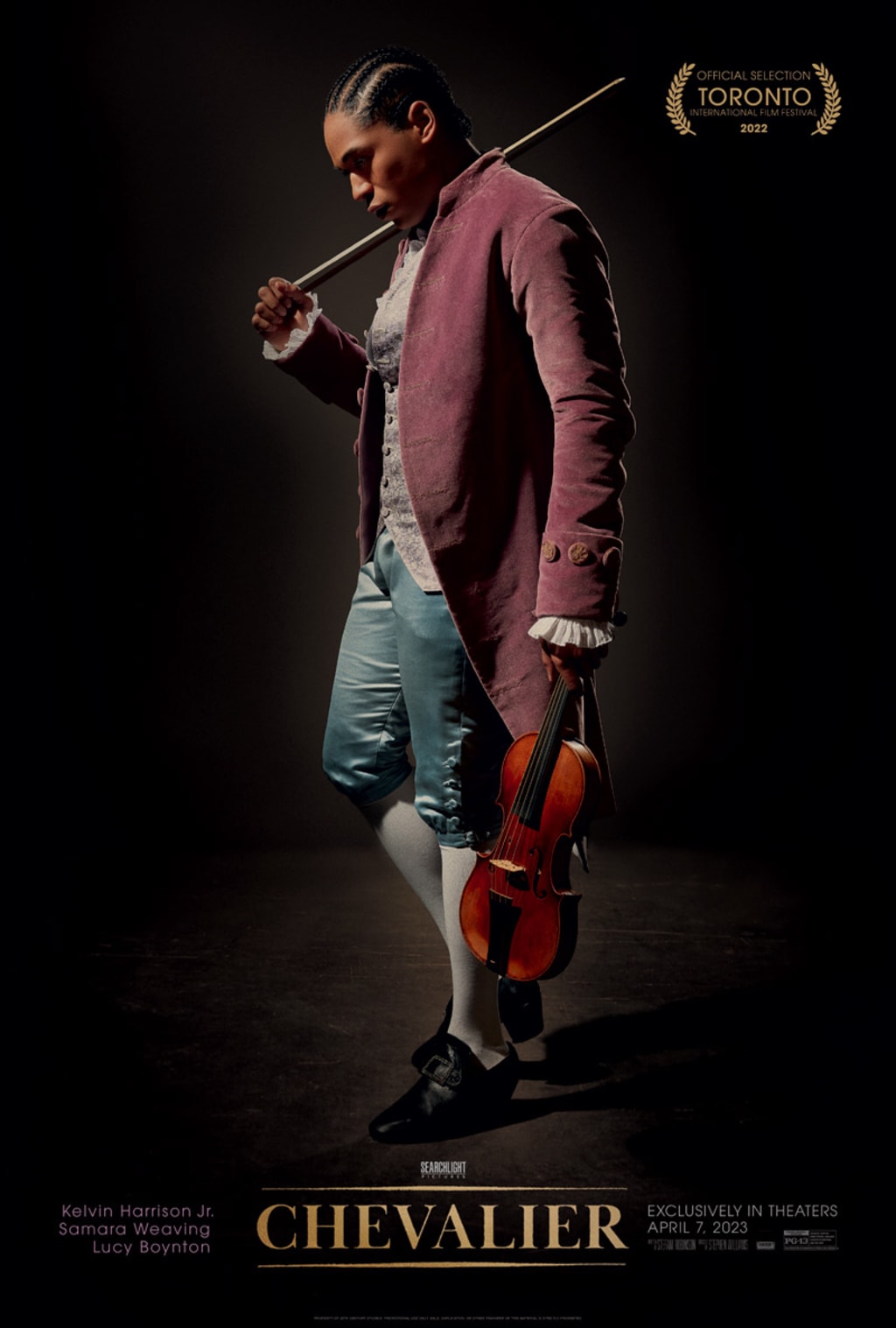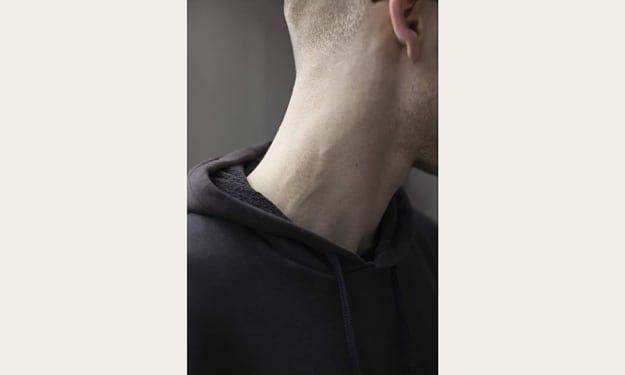Chevalier
Recovering a Footnote in History

Anybody who knows me, knows that my favourite film is Calamity Jane (1953). I will stop anything to hear the harmonies in Black Hills of Dakota. But the film that impressed me the most, well, that would be Amadeus (1984).
I was 15 when I went to see Amadeus (1984) at the Odeon in Sheffield City Centre (no longer with us – but new to the city centre back then). I went with my friends Fran, Lucy, Gina and Kate – all of whom I felt knew more about classical music than me. I thought it would be an intellectual and possibly a little dull experience. It wasn’t. It was a sensual treat.
And central to it was one of the most exquisitely un-hinged performances by Tom Hulce as Mozart. He was a giggling neurotic mess of talent. It is a very particular take on the idea of genius.
Yesterday, I went to see Chevalier.
It opens with an exaggerated show of violin talent, as Amadeus and Chevalier undertake a musical duel. Genius is performed, to the point that the young Mozart has to ask “Who the fuck was that?”
Chevalier has not received the same level of critical acclaim as Amadeus, but I was taken in by a very different portrayal of the idea of genius.

Whilst Hulce as Amadeus is frustratingly careless with his talents, allowing music to spill out of him and then drinking and partying away, Chevalier’s prodigious talent is also shown as work, as purposeful. Kelvin Harrison Junior, in the title role, displays genius as exhibitionism balanced with the containment of a man who knows his outsider status can destroy him at any point.
Of course, neither film is actually is about genius. Amadeus is about petty jealousy and rivalry. Chevalier is about inequality. It is about the role of art to disrupt power. And for power to dismiss art.
Also neither film is depicting an historically accurate portrayal. For Amadeus, the writer, Peter Schaffer, is giving his audience a murder-mystery. And for Chevalier, so much of his life and work has been erased that conjecture has to play a part.

Chevalier is about the life of Joseph Bologne, the illegitimate son of a plantation owner and one of his slaves. He shows musical talent and his father makes the decision to tear him away from his mother and his home in Guadeloupe to be schooled in Paris, from the age of 7. He is haunted by his father’s order that he should be ‘excellent’ and despite the bullying and racism he encounters he rises to improbable heights in the court of Marie Antoinette.
The film concentrates on the years 1778 – 79 where we see Joseph knighted as Chevalier de Sainte-Georges and then through the constant hum of racism, his knighthood is downgraded and he swaps his allegiance to the crown for the revolution.

I don’t want to give any more spoilers. But I cried. If you watch the film, which if you can, you should, you will know where I cried. It was the turning point in Joseph’s politics. His understanding that he will never be accepted, that his talent is second to his skin-colour and he cannot escape this, nor can he ever be safe. He will never be offered the chance to live his full humanity. The system and those within it are too cruel.
When I watched Amadeus as a teenager, I was absorbed into the screen by the lavish settings, the soaring score, the sense of threat from the first scene.
When I watched Chevalier, it was a similar experience. There is a bullish extravagance to the cinematography. There is a pleasure to be taken in the bawdiness. (Minnie Driver gives a wonderfully camp portrayal of a woman scorned). There is also a threat that hums underneath the playfulness. We know that revolution is coming. We know it will be bloody. We sense the desperation of those outside of the luxury of the court.

The central performances of Chevalier and Amadeus are comparable and impressive. However, part of the criticism of Chevalier has come from the broad characterisation, the use of archetypes and stereotypes in the wider cast. In a comparison with Amadeus, where the petty jealousy of Salieri is depicted with sophistication and tenderness, the villain of this piece is a cartoon depiction of cruelty. But then I look around, living in a new period of instability and inequality, and many of the villains of our times also lack nuance. They are simple, emboldened exemplars of brutality and carelessness.
However, I do understand some of the films critics. Ultimately the film feels unfinished – like a first episode of a series that gets cancelled. There is too much lost in the revolution. As the final credits state, much of Joseph, Chevalier de Sainte-Georges’ work was deliberately erased by Napoléon. It is almost as if the man and his genius became a footnote in his own history.
About the Creator
Rachel Robbins
Writer-Performer based in the North of England. A joyous, flawed mess.
Please read my stories and enjoy. And if you can, please leave a tip. Money raised will be used towards funding a one-woman story-telling, comedy show.






Comments
There are no comments for this story
Be the first to respond and start the conversation.